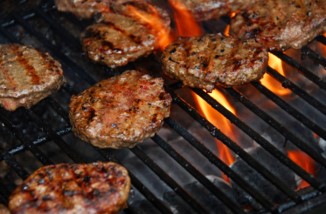Where’s the Beef!! This is an old slogan that Burger King used in the past. Many years later customers are asking What’s with the Beef? And Burger King isn’t the only place where you can find a vegan alternative to real beef. And finally, one that tastes like the real thing. But how do they compare nutritionally? And unless you’re eating vegan anyway why would you want to switch?
First off let’s look at the difference in regular ground beef to what now is being offered up to the consumer at the grocery store.
When comparing 4 ounces of 85% lean ground beef to 4 ounces of the Impossible Burger and Beyond Burger. This is what we found [1].

Comparison of Beef and 2 Plant Based Burgers
Ground Beef – Calories = 240. Saturated Fat = 6 grams. Sodium = 80mg. Carbs = 0. Protein = 21grams
Impossible Burger – Calories = 240. Sat Fat = 6 grams. Sodium = 370mg. Carbs = 9 grams. Protein = 19gr
Beyond Burger – Calories = 250. Sat Fat = 6 grams. Sodium = 390mg. Carbs = 3 grams. Protein = 20grams.
As far as what the fast-food chains are doing [2,3] –
Burger King Whopper – Cal = 660. Sat Fat = 12g. Sodium = 980mg. Carbs = 49g. Protein = 28g.
Burger King Impossible Whopper Cal = 630. Sat Fat = 11g. Sodium = 1080mg. Carbs = 58g. Protein = 25g.
Carl’s Jr. Beyond Famous Star Burger [4] Cal = 710. Sodium = 1550mg. Protein = 30 grams
Famous Star Burger. Cal = 670. Sodium = 1210mg. Protein = 28 grams
So, the biggest takeaway nutritionally speaking is that the new “meat” isn’t necessarily a better option health wise.
So why else would you switch?
Environmentally speaking. There is a HUGE difference in the impact that producing animal meat compared to lab grown meat has on the environment. Here are the numbers per pound of meat. [5]
Animal Meat – Water usage – 1799 gallons. Greenhouse Emissions – 16 pounds. Land Use – 260 sq ft.
Lab-Grown – Water Usage – 324 gallons. Greenhouse Emissions – 3.52 pounds. Land Use 2.6 sq ft.
Okay. So, what about ingredients?
Beef – Meat from a cow or a bull.
Impossible Burger [6] – Water, Soy Protein Concentrate, Coconut Oil, Sunflower Oil, Natural Flavors, 2% or less of Potato Protein, Methylcellulose, Yeast Extract, Cultured Dextrose, Food Starch Modified, Soy Leghemoglobin, Salt, Soy Protein Isolate, Mixed Tocopherols (Vitamin E), Zinc Gluconate, Thiamine Hydrochloride (Vitamin B1), Sodium Ascorbate (Vitamin C), Niacin, Pyridoxine Hydrochloride (Vitamin B6), Riboflavin (Vitamin B2, Vitamin B12.
Beyond Burger [7] – Water, Pea Protein Isolate, Expeller-Pressed Canola Oil, Refined Coconut Oil, Contains 2% or less of – Cellulose from Bamboo, Methylcellulose, Potato Starch, Natural Flavor, Maltodextrin, Yeast Extract, Salt, Sunflower Oil, Vegetable Glycerin, Dried Yeast, Gum Arabic, Citrus Extract (to protect quality), Ascorbic Acid (to maintain color), Beet Juice Extract (for color), Acetic Acid, Succinic Acid, Modified food Starch, Annatto (for color).
So now you have the facts
So now you have the facts. As always, you’re the one who decides what to put in your mouth.
[2] https://www.prevention.com/food-nutrition/healthy-eating/a27308144/burger-king-impossible-whopper-nutrition-facts/
[3] https://fastfoodnutrition.org/burger-king/whopper/wo-cheese
[4] https://www.nytimes.com/2019/09/21/climate/plant-based-meat.html
[5] https://www.cbinsights.com/research/future-of-meat-industrial-farming/#startups
[6] https://faq.impossiblefoods.com/hc/en-us/articles/360018937494-What-are-the-ingredients-
[7] https://www.foodbusinessnews.net/articles/13881-beyond-burger-needs-multiple-ingredients-to-mimic-meat